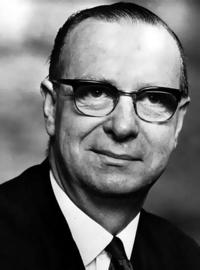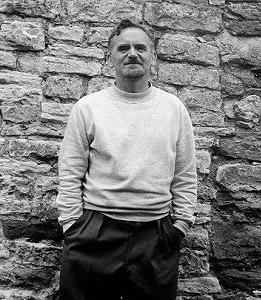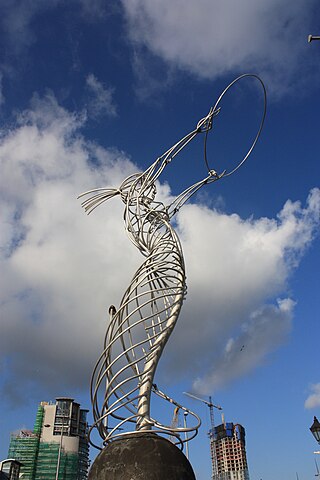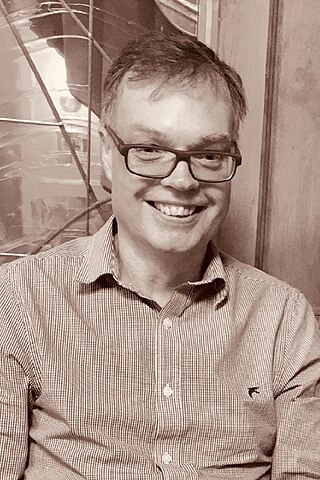
John Hume was an Irish nationalist politician in Northern Ireland and a Nobel Peace Prize laureate. A founder and leader of the Social Democratic and Labour Party, Hume served in the Parliament of Northern Ireland; the Northern Ireland Assembly including, in 1974, its first power-sharing executive; the European Parliament and the United Kingdom Parliament. Seeking an accommodation between Irish nationalism and Ulster unionism, and soliciting American support, he was both critical of British government policy in Northern Ireland and opposed to the republican embrace of "armed struggle". In their 1998 citation, the Norwegian Nobel Committee recognised Hume as an architect of the Good Friday Agreement. For himself, Hume wished to be remembered as having been, in his earlier years, a pioneer of the credit union movement.
The Social Democratic and Labour Party is a social democratic and Irish nationalist political party in Northern Ireland. The SDLP currently has eight members in the Northern Ireland Assembly (MLAs) and two members of Parliament (MPs) in the House of Commons of the United Kingdom.

The only official flag for Northern Ireland is the Union Flag or Union Jack, the flag of the United Kingdom; there is no official local flag that represents only Northern Ireland. The flying of various flags in Northern Ireland is a significant sectarian issue, with different communities identifying with different flags.

Gerard Fitt, Baron Fitt, was a politician from Belfast, Northern Ireland. He was a founder and the first leader of the Social Democratic and Labour Party (SDLP), a social democratic and Irish nationalist party.
The Sunningdale Agreement was an attempt to establish a power-sharing Northern Ireland Executive and a cross-border Council of Ireland. The agreement was signed by the British and Irish government in Sunningdale, Berkshire, on 9 December 1973. Unionist opposition, violence and a general strike caused the collapse of the agreement in May 1974.
John Kindness is an Irish artist working a range of media including sculpture and painting. His work often contrasts material, image and reference in an unusual and humorous way.
The Northern Ireland flags issue is one that divides the population along sectarian lines. Depending on political allegiance, people identify with differing flags and symbols, some of which have, or have had, official status in Northern Ireland.

William Scott was a prominent abstract painter from Northern Ireland, known for his themes of still life, landscape and female nudes. He is the most internationally celebrated of 20th-century Ulster painters. His early life was the subject of the film Every Picture Tells a Story, made by his son James Scott.
Events during the year 1946 in Northern Ireland.

The Beacon of Hope, Harmony of Belfast or Thanksgiving Square Beacon is a £300,000 public art metal sculpture by Andy Scott 19.5 metres high constructed in 2007 in Thanksgiving Square in Belfast, Northern Ireland. Other nicknames for the piece include Nuala with the Hula , the Belle on the Ball, the Doll with the Ball, the Whoore with the Hoop, the Angel of Harmony, the Thing with the Ring, Our Lady of Thanksgiving and the Angel of Thanksgiving. It is currently the second largest public art sculpture in Belfast, after Rise on Broadway Roundabout.
Deborah Brown was a Northern Irish sculptor. She is well known in Ireland for her pioneering exploration of the medium of fibre glass in the 1960s and established herself as one of the country's leading sculptors, achieving extensive international acclaim.
Carolyn MulhollandHRHA, HRUA is an Irish sculptor.

Wilhelmina Geddes HRUA was an Irish stained glass artist who was an important figure within the Irish Arts and Crafts movement and also the twentieth-century British stained glass revival. Notable works include windows at St Bartholomew's, St Peter's Church, and the King Albert Memorial Window, St Martin's Cathedral.

Félix Anaut is a Spanish painter whose work is based in Abstract Expressionism and Figurative Monumentalism.
Anna CheyneHRUA was a British artist and sculptor working with diverse media including batik, ceramics, papier mâché, stone, fibreglass and bronze. Cheyne was born and educated in England but moved to Northern Ireland after her marriage to architect Donald Cheyne.

The Metropolitan Arts Centre, usually referred to as the MAC, is an arts venue in Belfast's Cathedral Quarter and is home to all kinds of exhibitions, theatre performances, experimental works.

Angela Christina MacDonnell, Countess of Antrim, also known as Angela Antrim, was Countess of Antrim, a sculptor, a cartoonist, and an illustrator.

Keith Drury is a Northern Ireland artist initially known for oil paintings and for cityscapes created by 3D modelling. Many of his early oil on canvas artworks gained national media attention. He is now best known for his intricate and highly coloured urban landscapes.
Cherith McKinstry was an Irish painter and sculptor.














